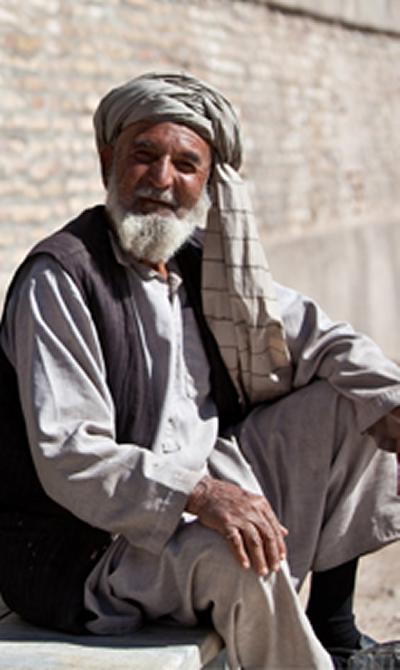Third of countries struggling to meet the needs of ageing population

People around the world are living longer, but social policies to support their wellbeing in later life are lagging behind in many countries. This is according a new report by HelpAge International, developed in partnership with the University of Southampton.
More than a third of countries are falling significantly behind those at the top of the Global AgeWatch Index. It ranks 96 nations on the basis of the quality of life and social and economic wellbeing of older people (over 60s). The Index can also help governments to identify policies and institutional contexts that lead to better lives for older people.
Professor Asghar Zaidi, from the Centre for Research on Ageing at the University of Southampton, led the development of the Index, working alongside HelpAge International.
“The Index points to a mismatch between advances in longevity and a lag in the evolution of policies that empower older people,” says Professor Zaidi. “Societies have been slow to embrace the positive aspects of longevity and to see older people as a resource that, in the right circumstances, can repay investment with extended working careers as well as more self-reliant, healthy and independent living.”
The Global AgeWatch Index recognises that income, health, personal capabilities and an enabling social environment are all important factors of the wellbeing of older citizens. On the basis of the latest Index results, and by analysing national policies and strategies, it finds:
- Norway is the best place for older people, alongside Sweden, Switzerland and Canada.
- The United Kingdom is ranked 11th, although it is ranked 3rd for the enabling environment.
- Globally, by 2050, the number of over 60s will be 21 per cent of the global population (currently 12 per cent in 2014).
- Apart from Japan, the top ten countries are in Western Europe, North America and Australasia. Israel and Estonia join the top 20.
- The older populations of the three lowest-ranked countries, the West Bank and Gaza, (94) Mozambique (95) and Afghanistan (96), still account for less than five per cent of the total population.
The report highlights the disparity between those nations at the top of the Index and those in the lower third. For example, on income security, 26 countries scored less than half the top values set by Norway and France (89.1 and 88.0 respectively).
In lower ranked countries, policies on; pensions, educational and employment opportunities, free healthcare and treatment of chronic conditions, support for family and community carers, and subsidised transport, have been slow to evolve compared with the fast rise in the numbers of older people.
Toby Porter, Chief Executive of HelpAge International, said: “The unprecedented rate and speed of population ageing presents policy-makers with a challenge. Only if they act now will they have a chance to meet the needs of their citizens and keep their economies going.”
Currently, two-thirds of the world’s over-60s live in low and middle-income countries and this will rise to four-fifths by 2050. The proportion of over-80s is growing fastest – projected to rise from two per cent now to four per cent of the global population by 2050.
“An essential distinction is required between policies suitable for the current generations of older people and those required for future generations,” says Professor Zaidi. “Today’s older people need protection and empowerment. For future generations the focus must be on providing opportunities for employment during their working lives and better mechanisms to build resilience for old age.”
Sufficient data was only available for 96 countries, resulting in many not being included. The Economic and Social Research Council (ESRC) has recently awarded the University of Southampton a £200K grant to conduct an in-depth analysis into the four most populous countries in the Index: China, India, Pakistan and Bangladesh. Professor Asghar Zaidi will be the Principal Investigator of this ESRC project, in partnership with HelpAge International.
Southampton’s Vice Chancellor, Professor Don Nutbeam, commented: “The Global AgeWatch Index is an impressive contribution to science and policy making. I am delighted that the University has played such a central role in its development.”